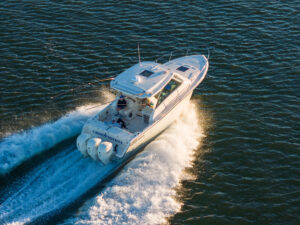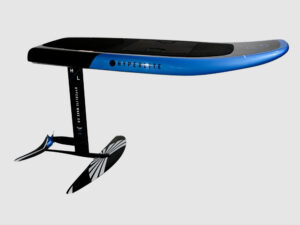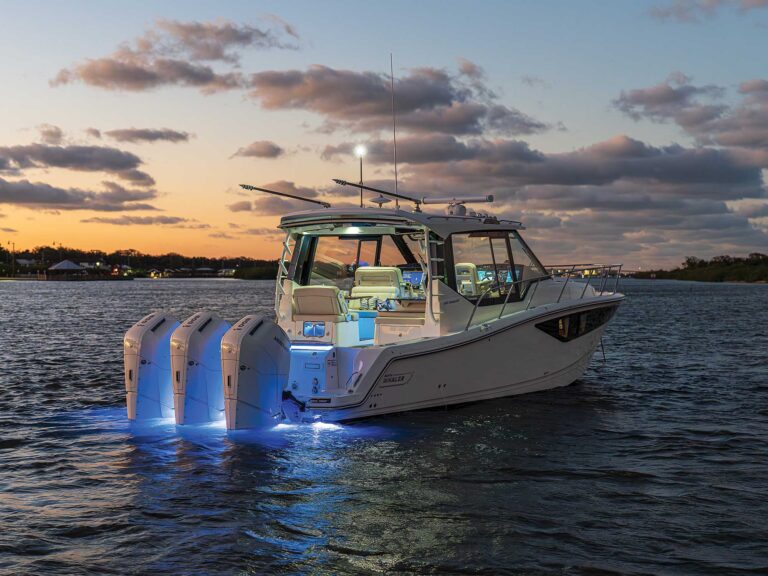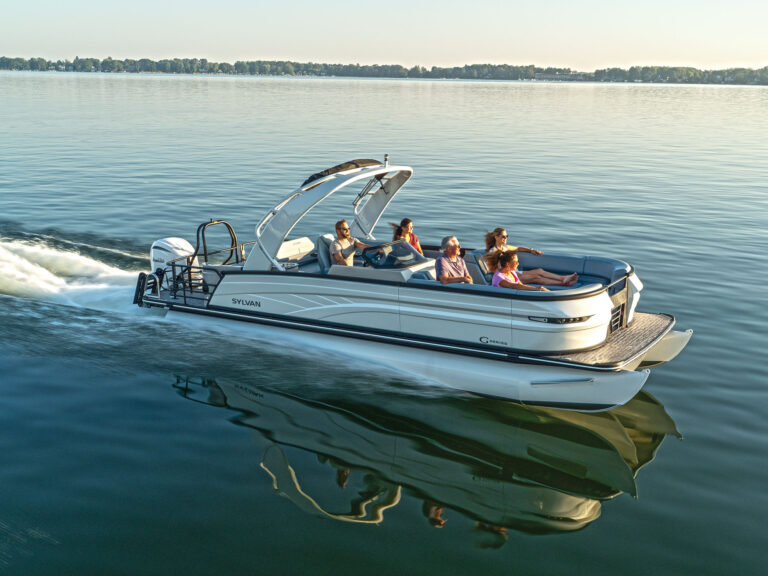
You might own a center-console, bowrider or pontoon boat. But that doesn’t mean you can’t spend a night, or even a weekend, aboard your boat from time to time. Simply anchoring out close to home port somewhere can prove to be a fun adventure. Check out these tips gleaned from my own experience sleeping aboard open boats.

Nature’s Call
Many open boats offer an enclosed head. Many do not. If your boat is the latter, one option is to purchase a portable marine toilet (more on this later). Another option is to anchor or beach near public parkland where facilities are a wade away. In a wilderness boating area, go ashore and answer nature’s call according to the best practices of hikers and backpackers.
Food
I often plan to catch some of what we’ll eat while camping aboard my 20-footer. Still, it’s good to bring enough meals, snacks and beverages for the duration. I suggest preparing in advance many items to make cooking and cleanup easier and to reduce trash. Pre-scramble eggs and bring them aboard in Tupperware, for instance, or trim and season meats at home before stowing in zippered plastic bags. Parboil chicken. Chili, soups or stews brought in a thermos make for low-fuss meals. Apply similar thinking to your menu.

Cooking
Propane boat grills (use only charcoal grills ashore) are available. These offer a variety of mounting options. I also bring along a one-burner propane camping stove that I set up on a cutting board that fits in a rod holder. (Other tables and mounts are available from makers such as Magma.) This is great for making coffee or frying fish, for example. The table or cutting board also gets used for food prep.
Bathing
Many small, open boats feature transom showers. For those that don’t, collapsible jugs of water from home should be brought aboard for washing. These can be left in the sun to warm up. Of course, purpose-made “sun showers” are available from marine and camping-supply retailers such as Camping World. (I use a dedicated garden sprayer.) As stated above, anchoring near a park may allow you access to land-based showers.
Sleeping
Your pontoon or dual-console might be equipped with a “camper canvas” and provide protection from the elements. If not, small, internal-frame tents will often fit in the bow or aft cockpit of an open boat. One of these can also provide the privacy for “enclosing” the portable toilet. Tent or enclosure or not, remember that uncovered items—including people—are likely to be dew-soaked by morning. So, rig a tarp of some sort, even in fair weather.
Trash
Apply “leave no trace” principles to your open-boat cruising. Bring home what you brought out. On one hand, try to minimize trash by buying bulk packaging of snacks, bringing food in reusable containers, and planning one-plate meals. But strike a balance. For instance, wiping off plates and pans with paper towels before washing creates more trash, but it allows carrying out most of the grease generated rather than having it end up in the bay or lake.
Read Next: Boat Camping Adventure
Shade
You will want some shade from the sun. Many boats have canvas such as a Bimini top. Additional shade can be had by sticking a beach umbrella or golf umbrella in a rod holder (lash it down with cords as well). Editor Kevin Falvey sewed up a simple shade out of Sunbrella fabric, which covers the bow of his boat, affixed to the rails with bungee cords. In any case, don’t discount the value of shade for when you are staying aboard.








